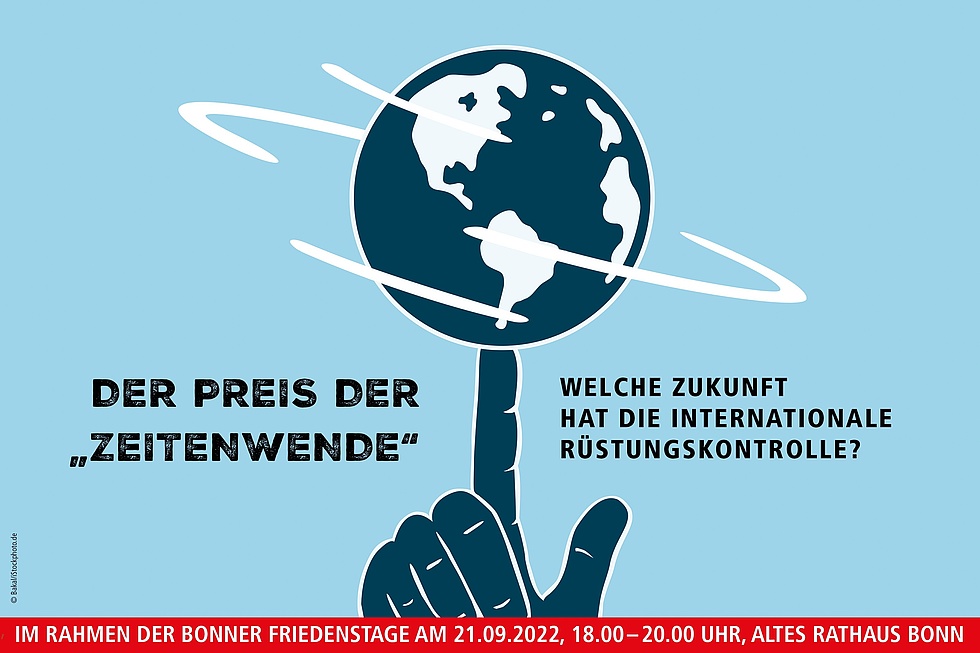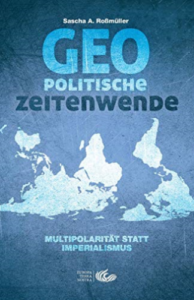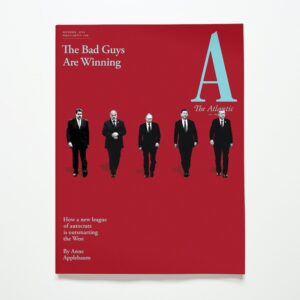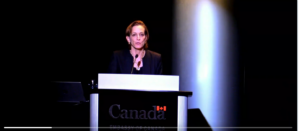
Credit: FES
The United States and its global partners should double down in 2023 to shape the contest unfolding between democrats and despots that will define the post-Cold War order, according to a leading commentator. There are three potential outcomes at this historic “inflection point’, says the Atlantic Council’s Fred Kempe:
- a reinvigoration and reinvention of our existing international liberal order
- a Chinese-led illiberal order
- or the breakdown of world order on the model of Putin’s “law of the jungle.”
What’s crucial in the year ahead is for democracies to unify in a common cause to shape the global future alongside moderate, modern non-democracies that seek a more secure, prosperous, and just world, he suggests.
China “is the only country with both the will and, increasingly, the power to reshape its region and the international order to suit its authoritarian preferences,” Defense Secretary Lloyd Austin said Saturday. “So let me be clear: We will not let that happen,” he told a forum held at the Ronald Reagan Presidential Library.
 The world is facing a Zeitenwende: an epochal tectonic shift, says German Chancellor Olaf Scholz. Germany and its partners in the EU, the United States, the G-7, and NATO must protect our open societies, stand up for our democratic values, and strengthen our alliances and partnerships. But we must also avoid the temptation to divide the world into blocs.
The world is facing a Zeitenwende: an epochal tectonic shift, says German Chancellor Olaf Scholz. Germany and its partners in the EU, the United States, the G-7, and NATO must protect our open societies, stand up for our democratic values, and strengthen our alliances and partnerships. But we must also avoid the temptation to divide the world into blocs.
This means making every effort to build new partnerships, pragmatically and without ideological blinders. In today’s densely interconnected world, the goal of advancing peace, prosperity, and human freedom calls for a different mindset and different tools, he writes for Foreign Affairs:
Germany and the EU are investing in new partnerships and broadening existing ones with many countries in Africa, Asia, the Caribbean, and Latin America. Many of them share a fundamental characteristic with us: they, too, are democracies. This commonality plays a crucial role—not because we aim to pit democracies against authoritarian states, which would only contribute to a new global dichotomy, but because sharing democratic values and systems will help us define joint priorities and achieve common goals in the new multipolar reality of the twenty-first century.
We might all have become capitalists (with the possible exception of North Korea and a tiny handful of other countries), Scholz adds. But it makes a huge difference whether capitalism is organized in a liberal, democratic way or along authoritarian lines. RTWT
 The world’s largest trading powers are rewiring their traditional relationships, leading to a new focus on strengthening the reliability of supply chains, shifting from “just in time” to “just in case” trade strategies and reducing dependence on authoritarian regimes like China, notes analyst Bryce Baschuk.
The world’s largest trading powers are rewiring their traditional relationships, leading to a new focus on strengthening the reliability of supply chains, shifting from “just in time” to “just in case” trade strategies and reducing dependence on authoritarian regimes like China, notes analyst Bryce Baschuk.
Some of these shifts are marginal, and temporary, while others represent the beginnings of longer-term structural realignments. Here are a few conclusions we can draw about the future, he writes for Bloomberg:
- The US and China aren’t engaged in a wholesale decoupling of their economies, but both nations are hedging their bets and deepening their trade flows with other nations;
- A strong, mutually beneficial US-EU trade relationship is more valuable and important at a time when both regions are reducing their dependence on China;
- The shift towards market concentration among regional economic hubs will take on increased importance in the coming years — particularly so in the Asia-Pacific region;
- The UK must find ways to mitigate the harmful effects of Brexit as EU producers rely less and less on UK exports to feed, clothe and service European citizens;
- Russia’s economic influence is approaching a generational nadir and it’s likely to remain a pariah state for many years to come.
Reglobalization
The German economy ministry is recommending excluding components from providers from authoritarian states in critical infrastructure and imposing stricter requirements for firms dealing with China, according to a new strategy paper, Reuters reports.
 Democracies should reduce their dependency on autocratic states and re-assess economic linkages, said Pulitzer Prize-winning historian Anne Applebaum (right). Mutual support is essential for confronting affluent autocratic alliances that act more like a business agglomeration – Autocracy, Inc. – than nation states, she said, delivering the 19th annual Seymour Martin Lipset Lecture, sponsored by the Embassy of Canada and the National Endowment for Democracy (NED).
Democracies should reduce their dependency on autocratic states and re-assess economic linkages, said Pulitzer Prize-winning historian Anne Applebaum (right). Mutual support is essential for confronting affluent autocratic alliances that act more like a business agglomeration – Autocracy, Inc. – than nation states, she said, delivering the 19th annual Seymour Martin Lipset Lecture, sponsored by the Embassy of Canada and the National Endowment for Democracy (NED).
What’s happening is a kind of “reglobalization” where governments and multinational companies adapt their trade links to accommodate the new economic and geopolitical challenges, Baschuk concludes.







